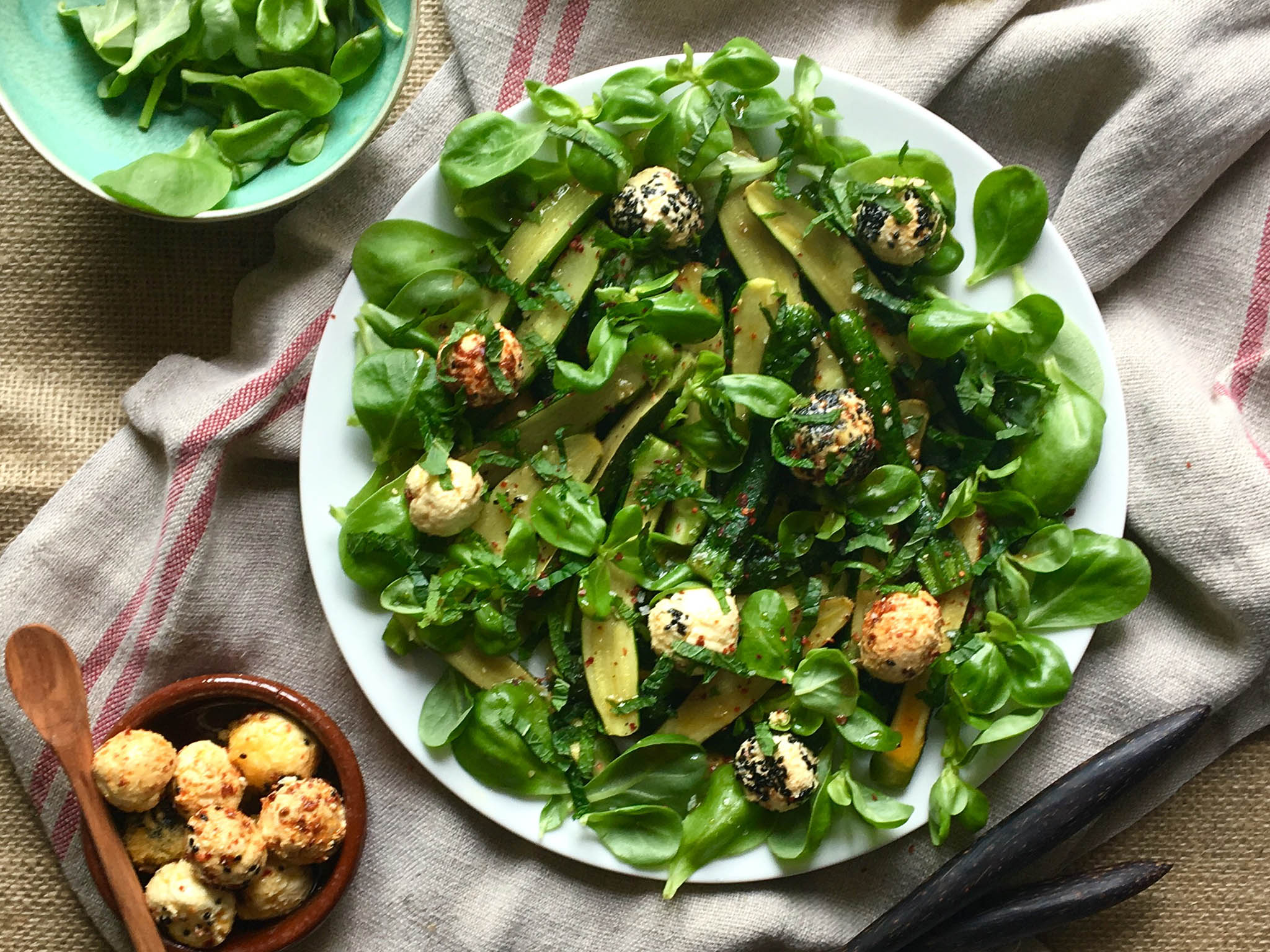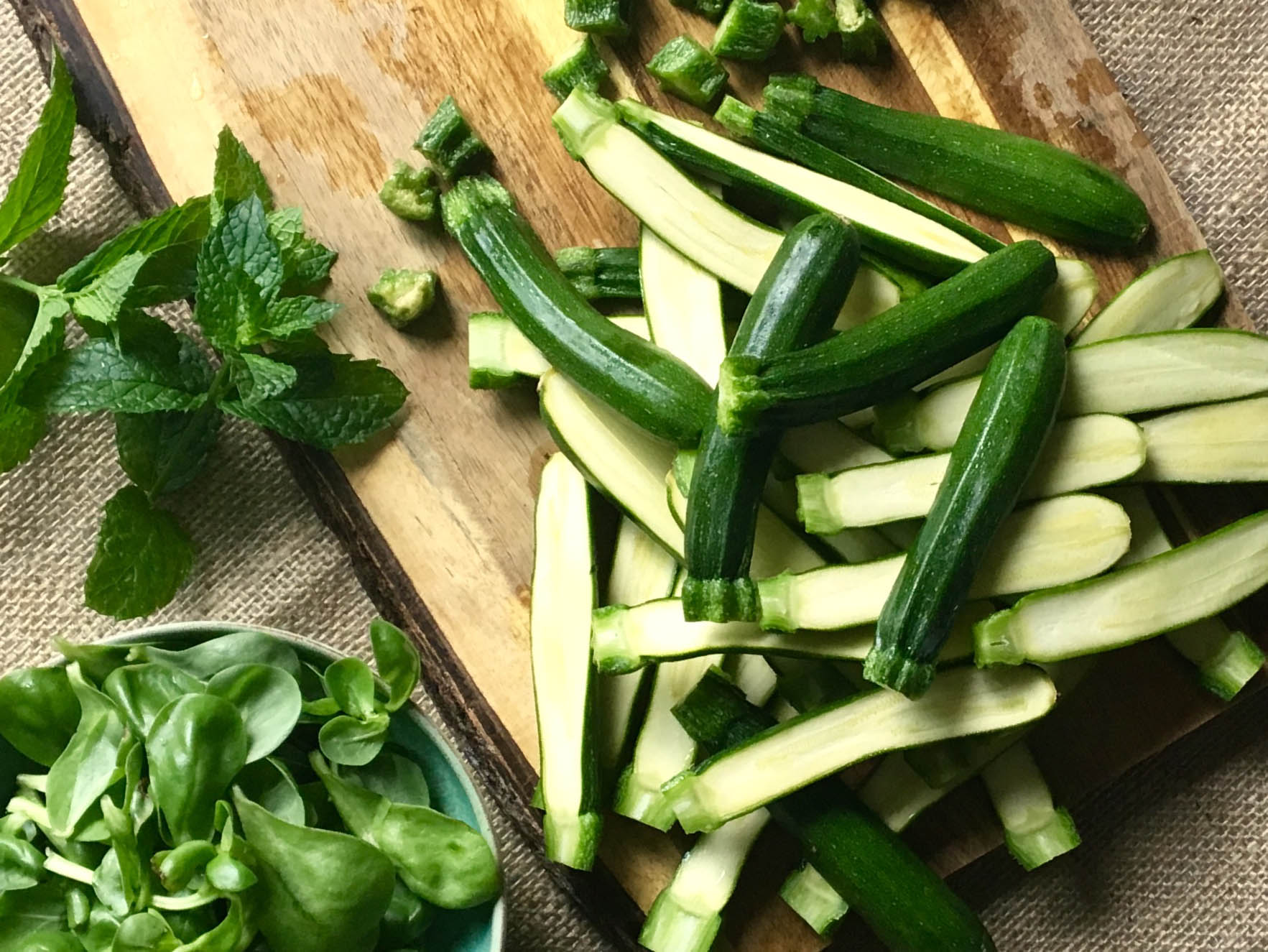Baby courgettes with purslane and labneh – recipe
The culinary chameleon is at its peak at this time of year – and the small ones are to die for, says Julia Platt Leonard

Your support helps us to tell the story
From reproductive rights to climate change to Big Tech, The Independent is on the ground when the story is developing. Whether it's investigating the financials of Elon Musk's pro-Trump PAC or producing our latest documentary, 'The A Word', which shines a light on the American women fighting for reproductive rights, we know how important it is to parse out the facts from the messaging.
At such a critical moment in US history, we need reporters on the ground. Your donation allows us to keep sending journalists to speak to both sides of the story.
The Independent is trusted by Americans across the entire political spectrum. And unlike many other quality news outlets, we choose not to lock Americans out of our reporting and analysis with paywalls. We believe quality journalism should be available to everyone, paid for by those who can afford it.
Your support makes all the difference.Turn your back on a courgette plant at your peril. One day, you spy a small, tender courgette, peeking out from under large leaves. You think you’ll leave it for a day but when you come back it’s not cute and cuddly anymore – it’s like it’s hulked out on steroids.
I’ll eat courgettes large or small but I do confess a fondness for the baby ones. They’re incredibly tender, require only a moment or two of cooking and you can even eat the stem. If you’re lucky enough to nab a courgette flower or two, they’re lovely to add into the mix.
Courgettes are at their peak at this time of year whether you’re picking up some at the vegetable market or picking them in your own garden. Luckily, they are a culinary chameleon and will happily submit to deep frying, grilling, sautéing or being shaved thinly and eaten raw.
For this recipe, I’ve paired them with creamy homemade labneh – yoghurt drained until it’s the consistency of soft cheese. I shape the labneh into balls and then roll them in chilli pepper flakes or nigella seeds. They’re also lovely coated in sumac or sesame seeds. Covered in oil in a clean glass jar, they’ll stay put happily in your fridge until you need them.
I’ve also added some purslane to the mix – the plant decried as a weed by some but adored by others. If you can find it – or better yet grow it – you should. It’s got a lemony taste that is delightful raw or cooked. It’s also packed with nutrients including vitamin E, omega-3 fatty acids (more than any other leafy vegetable), beta-carotene, vitamin C and much more.

Baby courgettes with purslane and labneh
If you can’t find purslane, not to worry. You can use lamb’s lettuce, spinach or rocket instead. Make the labneh a couple of days in advance to give the spices a chance to infuse the oil.
Serves 4
400g baby courgettes
1 bunch purslane, about 70g (2-3 handfuls)
5 tbsp water
1 tbsp olive oil
1 clove garlic, minced
Juice of ½ lemon
Small handful of mint
Salt
Labneh
500g Greek yoghurt
½ tsp salt
Red chilli flakes
Nigella seeds
Olive oil
To make the labneh, lay a double layer of cheesecloth or a scrupulously clean tea towel inside a fine sieve with a handle. Mix the yoghurt with the salt and spoon into the cloth. Bring the edges together to make a bundle. Perch the sieve over a large measuring jug or bowl to catch the liquid. Place in the refrigerator and check after 12 hours. You want the mixture to be firm enough so you can roll it into balls. If it’s not firm enough, let it sit for another few hours.
When firm, shape into balls and roll half the balls in chilli flakes and the other in nigella seeds. Place the balls in a clean glass jar filled halfway up with olive oil. Top up the jar with more oil if necessary so the labneh balls are completely covered. Refrigerate until ready to use.
To make the courgettes, slice them in half, lengthways, but leave the stem – it’s tender enough that you can eat the whole thing. Place the courgettes in a large frying pan with lid. Add the water and olive oil and a generous pinch of salt. Place over medium-high heat and cover with the lid. Cook for several minutes until the water starts to evaporate and the courgettes are turning slightly soft. Remove the lid, stir in the garlic and add the lemon juice. The courgettes should be tender to the bite but still hold their shape.
While the courgettes are cooking, wash and trim the purslane to remove any long stems.
@Juliapleonard
Join our commenting forum
Join thought-provoking conversations, follow other Independent readers and see their replies
Comments